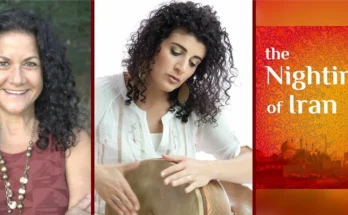Source: Iran International

At least 23 women have been killed in Iran by their husbands or male relatives since late March this year according to a report on Saturday by Iran’s ‘reformist’ Etemad news outlet.
Last year Etemad had reported that in a period of two and a half months, from late March 2023 to the beginning of June 2023, at least 10 women were killed by their male relatives as a result of domestic violence or so-called ‘honor’ based violence.
This means the number of such murders in Iran has more than doubled this year.
Tahereh Taleghani an Islamic expert told Etemad that she considered the lack of laws to protect women in Iran as one of the reasons for these murders.
Taleghani added that “a society that is suffering from various crises, problems, and issues, unconsciously goes towards tension and violence. This tension and violence extend into families.”
Highlighting the ongoing crises faced by women and girls in Iran, she underscored the insecurity they experience both in the streets and at home. She emphasized: “Violence at home leaves women feeling helpless, as neither the law nor the men in their families respect their rights.”
Details of the murders and motives
Critics have highlighted the Islamic legal system, along with Iran’s deeply entrenched patriarchal culture and traditions, as factors contributing to the rise of such killings. Others in the past have attributed the cause of ‘honor killings’ to fanatical beliefs.
Etemad cited the various motives behind these murders as being dissatisfaction with the way of cooking, marriage proposals being declined, refusal to have sex, requests for divorce, family disputes, and honor-based violence.
Among the women killed in, a 21-year-old girl was killed by her father on 29 March in one of the border villages of Abadan city with an ‘honor’ motive.
In Ahvaz, a 27-year-old woman was stabbed to death by her brothers on 7 April, also with ‘honor’ motive. The brothers of this young woman killed her in front of her husband and injured him, too, as he tried to intervene.
On 4 May, a man in Mashhad killed his wife based on ‘honor’ motives and injured the wife’s 16-year-old sister and brother with knife stabs. The victim’s sister is still in a coma.
On 1 May, a young woman named Shahin Govili died of severe injuries in Kausar Hospital after her husband set her on fire.
On 3 May, an Afghan woman who was six months pregnant was killed by her husband in Mashhad for being “disobedient” according to her husband’s confession.
In Tabriz, one of the daughters of the family, fearing that her father would kill her in addition to killing her mother, attempted suicide twice.
In one of the murders in Tehran, the father of the family killed his own son along with his wife.
Prevalence of ‘honor-based’ killings
A number of the murders reported were associated with honor-based motives. Historically some provinces in Iran have had a higher number of such forms of violence against women.
During her interview with Etemad Taleghani pointed out the higher prevalence of honor-based killings in certain provinces in comparison to other provinces and attributed this to a lack of modernization in those regions.
In the cases of honor-based killings, Taleghani stated that in Iran, one of the causes of honor killings is attributed to child marriage, further adding that “honor killings occur due to some inefficient laws or the lack of laws protecting women”.
“The female representatives in the parliament should also understand that some of the country’s laws are oppressive to women and should be amended,” she added.
According to Article 630 of the Islamic Penal Code, if a man catches his wife in the act of consensual adultery, he is allowed to kill both parties without facing publishment. This law only applies to women. Additionally, the killing of a child by the child’s father or paternal grandfather is exempt from the Qesas (retribution) sentence.
In this regard, Taleghani argued that “we do not have a word called ‘honor’ in the Quran” and that Iran’s Islamic Penal Code is “ineffective and does not work to solve today’s problems”.
According to the human rights organization, Hengaw, “at least 50 cases of femicide have been recorded in various cities of Iran since the beginning of 2024, with 10 of these cases, equivalent to 20%, being classified as honor” killings”.
Moreover, Human Rights Activists News Agency (HRANA) reported 40 cases of honor killing, in the Iranian calendar year that started in mid-March 2023.
Iranian Kurdish Women’s Rights Organization (IKWRO) based in the UK asserts that it is imperative to understand the distinct characteristics of ‘honor’ based abuse and “not to conflate it with other forms of violence against women and girls, such as domestic abuse” warning that this can “dangerously undermine the ability to safeguard those at risk”.




